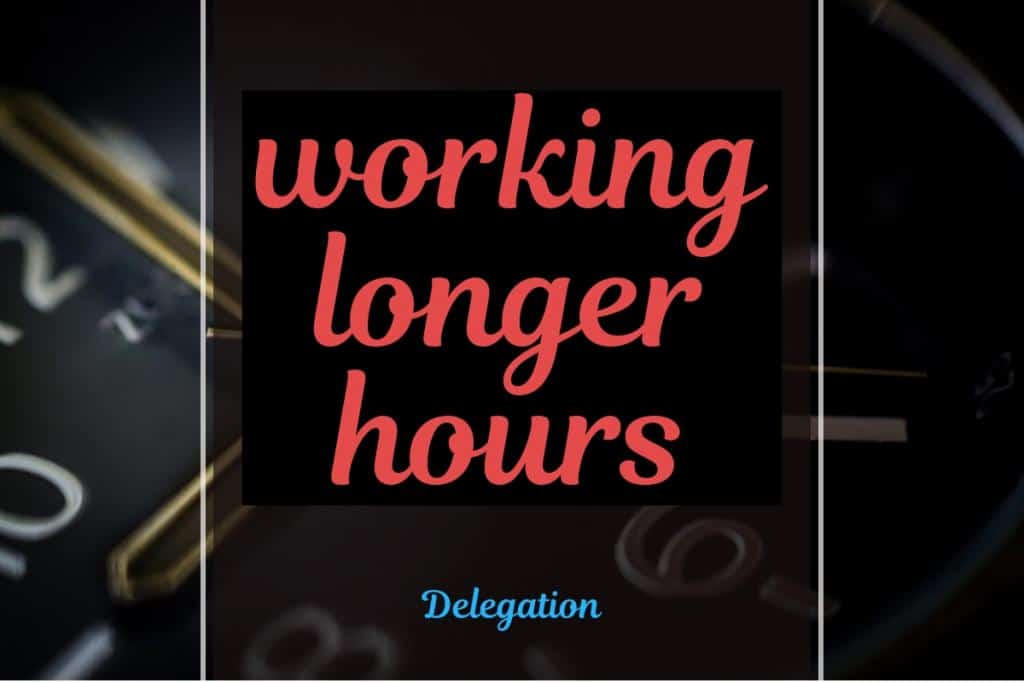🖊 This article was last updated on November 18, 2022
We all hit those unexpected days, weeks, or months when we have more on our plate than usual. How do you tackle them? Do you just ‘buckle down’ and get on with it? Do you go into ‘crunch time’ of working longer and harder? That is what most people do. But a 2014 study by Stanford University found that this ‘longer-harder’ approach is actually counter-productive.
This might be hard to believe, especially with business giants like Elon Musk claiming to work 100-120 hours a week. But this culture of overworking is not advisable. It is damaging to your health, your productivity, and your bottom line.
We’ll look at why longer-harder working hours don’t work and an alternative to maximise your productivity.
The Man
Let’s take the example of Elon Musk since he has become synonymous with business success and productivity. Using various interviews, Business Insider pieced together what a typical Elon Musk daily schedule might look like.
It’s an early rise, no breakfast, endless multitasking, emailing even when with family, skipped meals or wolfed down in 5 minutes, and working as many hours as (super)humanly possible.

But what works for Elon Musk doesn’t work for us mere mortals! And, to be honest, this does not sound like the life I dreamed of when I started out as an entrepreneur either. Yes, I may will never reach the dizzying heights of Musk, but that’s not to say his way is the only way, or indeed the right way, to success.
The Myth: More Hours Equals More Productivity
The previously mentioned study, ‘The Productivity of Working Hours’, focused on ammunition factories during the First World War. When the need for ammunition rose, a 7-day week was introduced to meet demand, meaning no day off workers.
Instead of more ammunition being produced, the output stayed exactly the same as it had been for 6 working days. The study found that depriving workers of a rest was not productive, stating, “seven days’ labour only produces six days’ output.”
Working beyond 40 hours is pointless instead of productive

More recent studies have also shown that for knowledge workers, 8 weeks of 60 hours each delivers the same output as 8 weeks of 40 hours. There is clearly a limit to what we can do. If we force ourselves to work beyond that, the body and mind may be present and perhaps even willing, but it’s certainly not able.
The Naked Truth of Working Longer Hours
Working excessively long hours is bad for business. If you were to stick to Elon Musk’s schedule, you’d have a maximum window of 6 hours sleep and that’s only if you’re able to switch off immediately!
Lack of sleep alone leads to a number of issues which will affect your productivity, including:
- Lack of focus
- Unable to concentrate
- Higher stress levels
- Lower reaction times
- Reduced ability to critically assess and process information
- Inability to make quality decisions
- Diminished creativity
When the work piles up, things move quickly. Working longer hours greatly impairs your capacity to keep up with changes and take necessary action.
A study by the American Journal of Epidemiology, found that workers clocking 55 hours a week or more had poorer short-term memory compared to those who worked 40 hours a week.
When you’re burning the candle at both ends… you are going to burnout real fast.
The Time Crunch Alternative
Work less. Achieve more. This may sound like an oxymoron but bear with me! While it’s not magic, there are a few tricks that allow you to be more productive by working fewer hours.
The first has to do with a concept called Parkinson’s Law. The idea is basically that work is ‘elastic’ and will expand to fill whatever time frame you have allowed for its completion.
Instead of saying “I am going to work until this project is finished”, (which really means, “I could be here forever”) give yourself a new, tighter deadline. By limiting the time for a task you give yourself a goal, motivation, and a sense of urgency to fulfill it.
Then, take this even further using the Pomodoro Technique, a time management strategy which encourages you to work with the time you have, not against it.
With this technique you break down your schedule into smaller segments of 25 minute work and 5 or 15 minute breaks. Repeat the process- work, break, work, break. It’s like hitting refresh on your laptop to help it work faster. You stay motivated and focused, and ultimately achieve so much more in less time.
Conclusion
When work goes crazy, our natural reaction is to nail ourselves to the wall, or the desk! Working overtime has become a symbol of success and something to be admired. Yet, the truth of the matter is that ‘longer-harder’ working hours are nothing but a man-made myth.
There are stacks of evidence showing that working more does not produce more. What it does do is damage your health, your business, and your relationships. Zero productivity!
By shortening the time periods for focus we can keep the momentum and tackle important tasks when we are operating at our best. It’s all about working smarter not harder!
- These Black Friday deals will skyrocket your productivity (2021 edition) - November 11, 2021
- How to Stay Productive as a Digital Nomad - December 23, 2019
- When is the right time to outsource? - December 3, 2019

